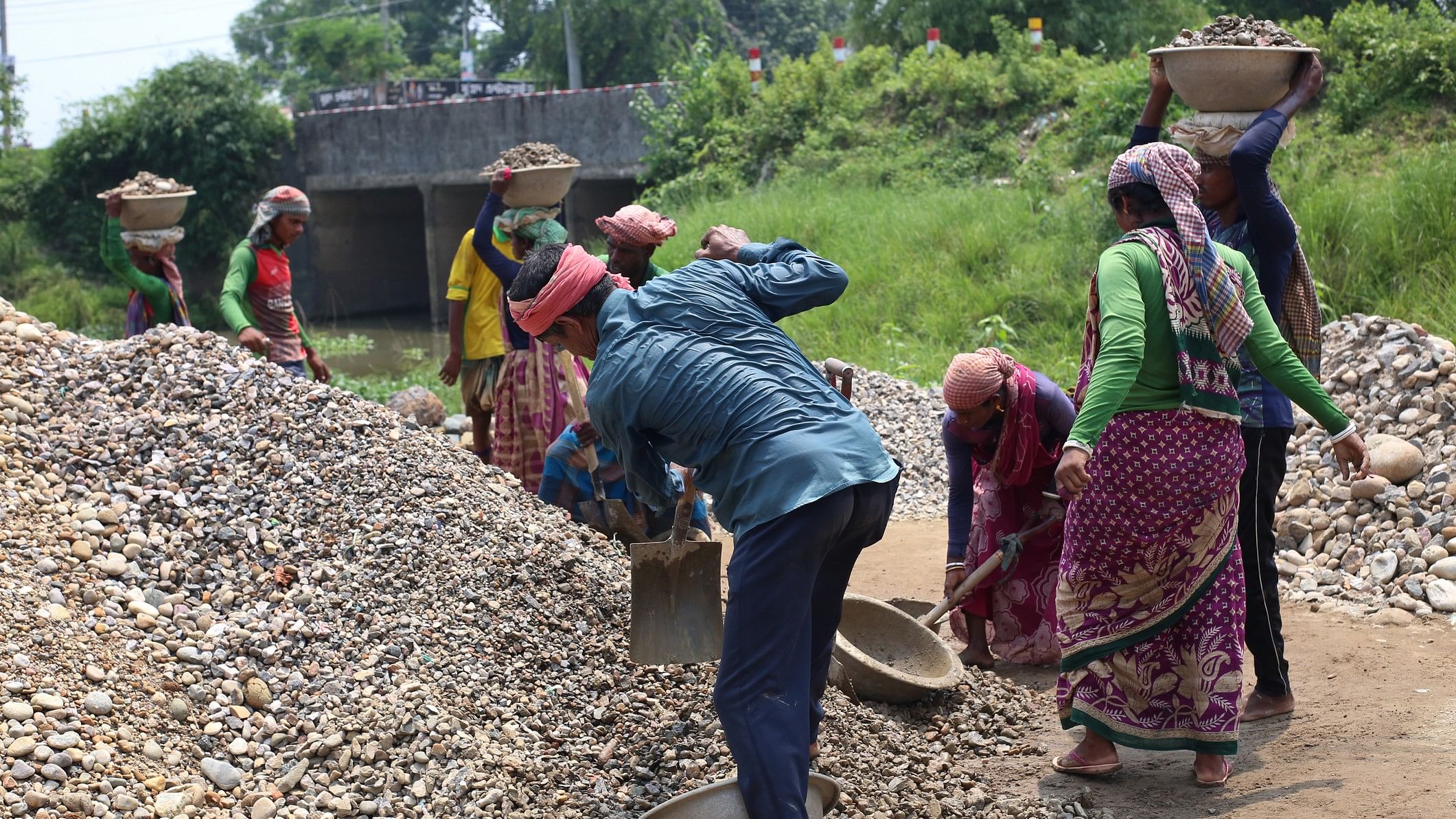
Representative image showing labourers
Credit: iStock Photo
Bengaluru: Forty-eight years after it was abolished by a federal law, the pernicious practice of bonded labour still exists in Bengaluru and 10 other districts of Karnataka, counted among India’s progressive states, according to the government’s own admission.
Now, the Siddaramaiah government has appointed 52 officials designated as ‘Bonded Labour Prohibition Officers’ to crack down on the exploitative system. Their job: stop bonded labour, collect evidence for prosecuting offenders and create awareness among citizens and businesses.
But one expert remained unimpressed by the move and said a strict implementation of the Bonded Labour System (Abolition) Act, 1976, had a better chance of rooting out the scourge that has managed to endure to this day.
Bonded labour is when a person is made to work as a means of repayment of debt. It often includes forced work for a fixed time without pay. Offenders are liable for three years’ jail.
From 2016 to 2024, Karnataka saw 2,631 cases of bonded labour. In the same period, Karnataka paid pension to 4,397 ‘freed’ bonded labourers. The state government provides a monthly allowance of Rs 2,000 — hiked from Rs 1,000 earlier — to freed bonded labourers.
Under the Centre’s rehabilitation scheme, freed male bonded labourers get Rs 1 lakh, while female/children are given Rs 2 lakh. For grave exploitation, a sum of Rs 3 lakh is paid. However, the entire amount is released only after the final verdict of competent courts.
According to a recent government notification, the districts of Bengaluru Urban, Chikkaballapur, Hassan, Mandya, Mysuru, Chikmagalur, Belagavi, Bagalkot, Ramanagara, Kolar and Tumakuru have reported the highest number of bonded labour cases.
Most cases are from agriculture-sericulture constructions, borewell digging, small industries, textile units, sawmills, hotels, stone quarries, meat processing facilities and brick kilns. Also, most cases involve migrant workers, the government stated.
The appointment of ‘bonded labour prohibition officers’ was a promise Chief Minister Siddaramaiah made in the 2024-25 budget “to complement efforts to effectively uproot this evil”.
The list of ‘prohibition officers’ includes deputy commissioners, personnel from the departments of police, education, labour, social welfare, agriculture, rural development & panchayat raj and so on.
Kiran Kamal Prasad from Jeevika, a non-profit he founded to liberate bonded labour, questioned the need for such ‘prohibition officers’.
“Officers already have powers. What’s the need for them to be named as ‘prohibition officers’?” Prasad said. “The Bonded Labour System (Abolition) Act, 1976, is a very powerful law. If implemented properly, bonded labour would be a thing of the past.”
According to Prasad, identification and rehabilitation of bonded labour is more in south Karnataka. “Thanks to Devaraj Urs, social justice is taken more seriously in the south. But feudalism is stronger in north Karnataka where bonded labourers are afraid to come out,” he said. “The moment an FIR is filed against the landlords, the labourers face pressure...they face consequences.”
